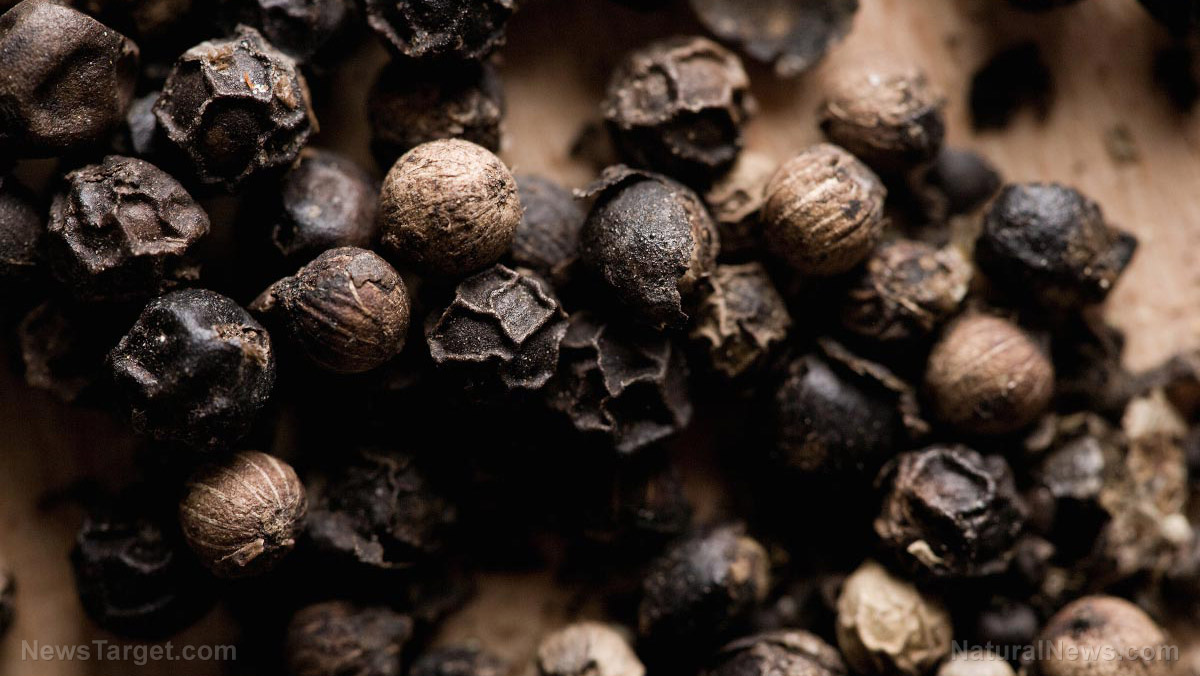
Advertisement
A new study revealed that black pepper could help fight against obesity by reducing body fat and blood sugar levels. The study was carried out by a team of researchers from Sri Venkateswara University in India. For the study, the research team experimented on obese rats who were administered with a high-fat diet in a period of 22 weeks. Then, they drew out piperonal, the compound in black pepper, from black pepper seeds and included it to the rats’ diet starting from the 16th week.
The study results showed that the obese rats that were supplemented the black pepper compound gained lean body mass, bone mineral concentration, and bone mineral density compared with the control group of rats. In addition, the supplementation of piperonal reduced their blood sugar level after an hour, unlike in the control group. Furthermore, the researchers observed that the preventive effects of piperonal against obesity were at optimal level at a dosage of 40 milligrams per kilogram (mg/kg) of body weight, administered for 42 days. Additionally, the results indicated that piperonal might assist the regulation of some genes related to obesity.
“Our findings demonstrate the efficacy of piperonal as a potent anti-obesity agent, provide scientific evidence for its traditional use, and suggest the possible mechanism of action,” the researchers wrote on the journal Nutrition and Metabolism.
Study finds mutations in a gene associated with obesity
Researchers continue to study what specific mutations cause obesity. In a separate research conducted by a team of researchers from Imperial College London on obese children. For the study, the researchers concentrated on obese children in Pakistan because the team identified genetic links to obesity in around 30 percent of cases in the past. The researchers said that the reason behind the genetic links to obesity is the high level of inter-family relationship in its population. In addition, they found in the past study that parents who are closely related have more chance on carrying the same mutation, therefore a child may inherit it from both sides. This leads to a more severe mutation to take effect.
In the current study, they found mutations in one certain gene related to obesity called adenylate cyclase 3 (ADCY3), with the use of genome sequencing. This gene results to abnormalities associated with appetite control, diabetes, and the sense of smell. Furthermore, the researche team discovered that they also had anosmia, which showed a link to mutations in ADCY3.
“Early studies into ADCY3 tested mice that were bred to lack that gene, found that these animals were obese and also lacked the ability to smell, known as anosmia,” said Philippe Froguel of Imperial College London.
The findings of the study were published in the journal Nature Genetics.
Obesity, its causes and health risks
The number of obese people around the world increased almost three times since 1975, according to the World Health Organization (WHO). In 2016, over 1.9 billion adults were reported to be overweight, and more than 650 million of these were obese. These conditions lead to health consequences, such as cardiovascular diseases, diabetes, musculoskeletal disorders, and even some cancers. The main causes of obesity and overweight are the high consumption of high fat, energy-dense foods and the increase of physical inactivity because of the rising of sedentary lifestyle, changing modes of transportation, and rising urbanization.
Read more stories on natural cures like black pepper at Herbs.news.
Sources include:
Advertisements







